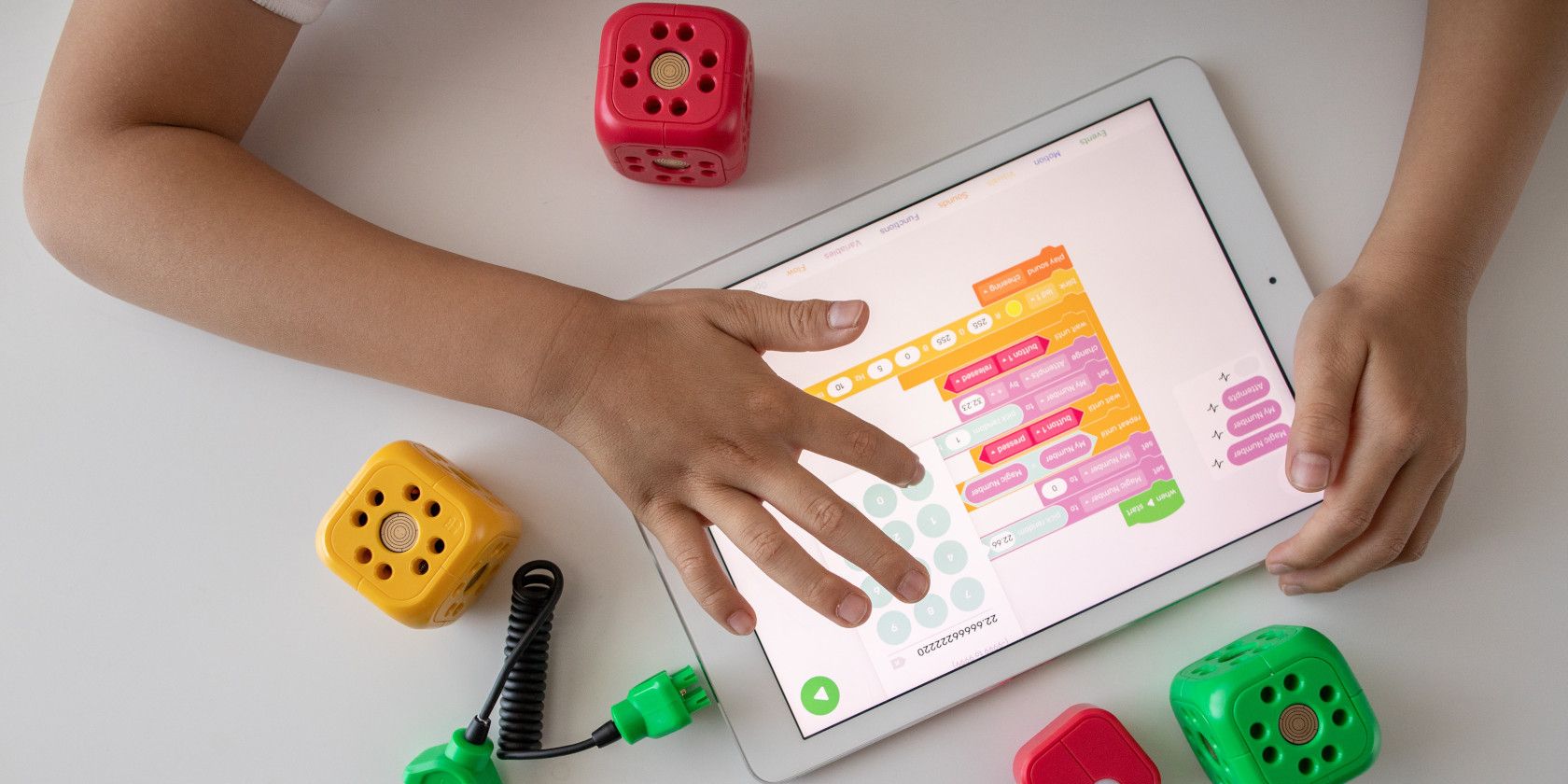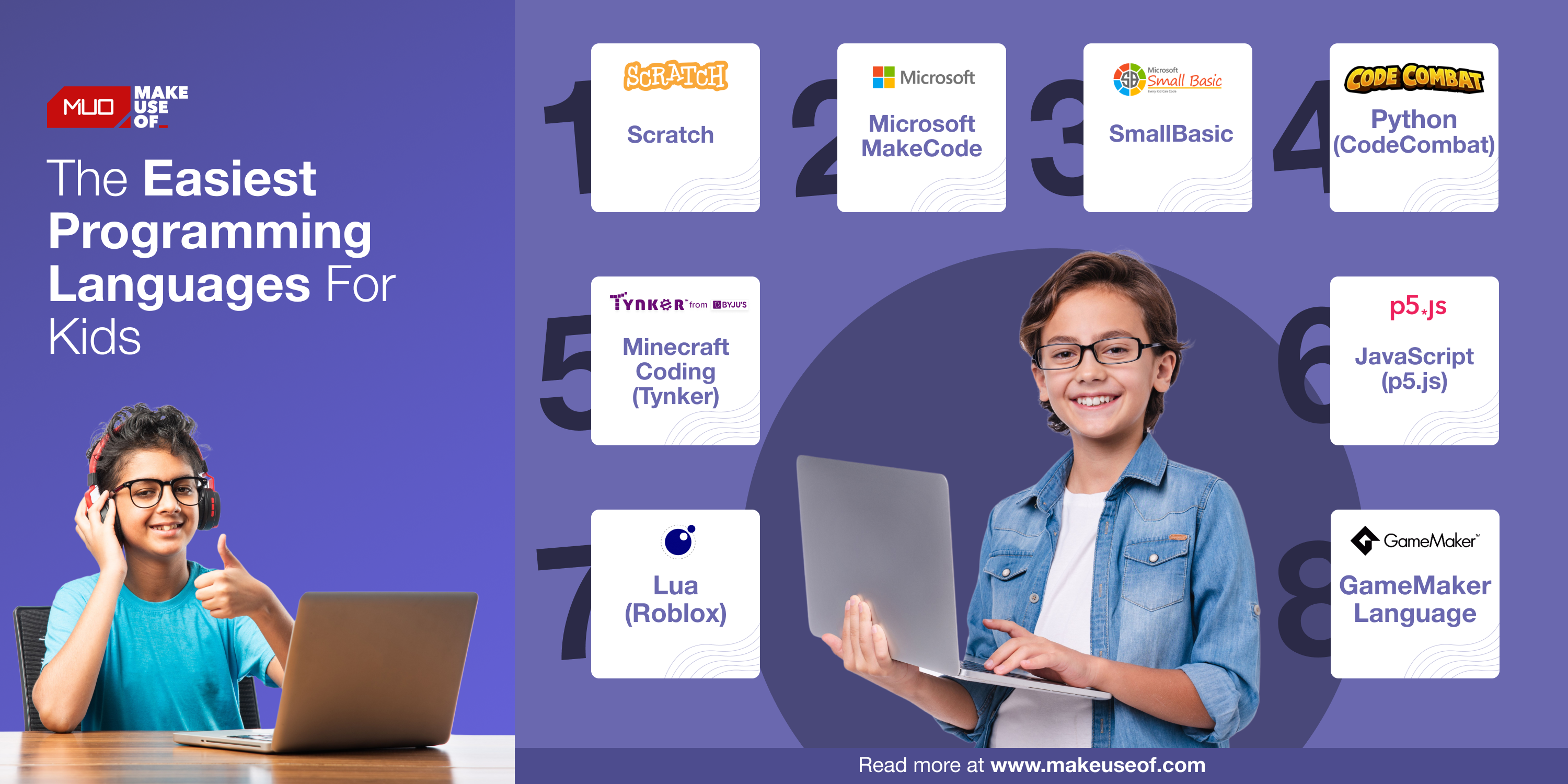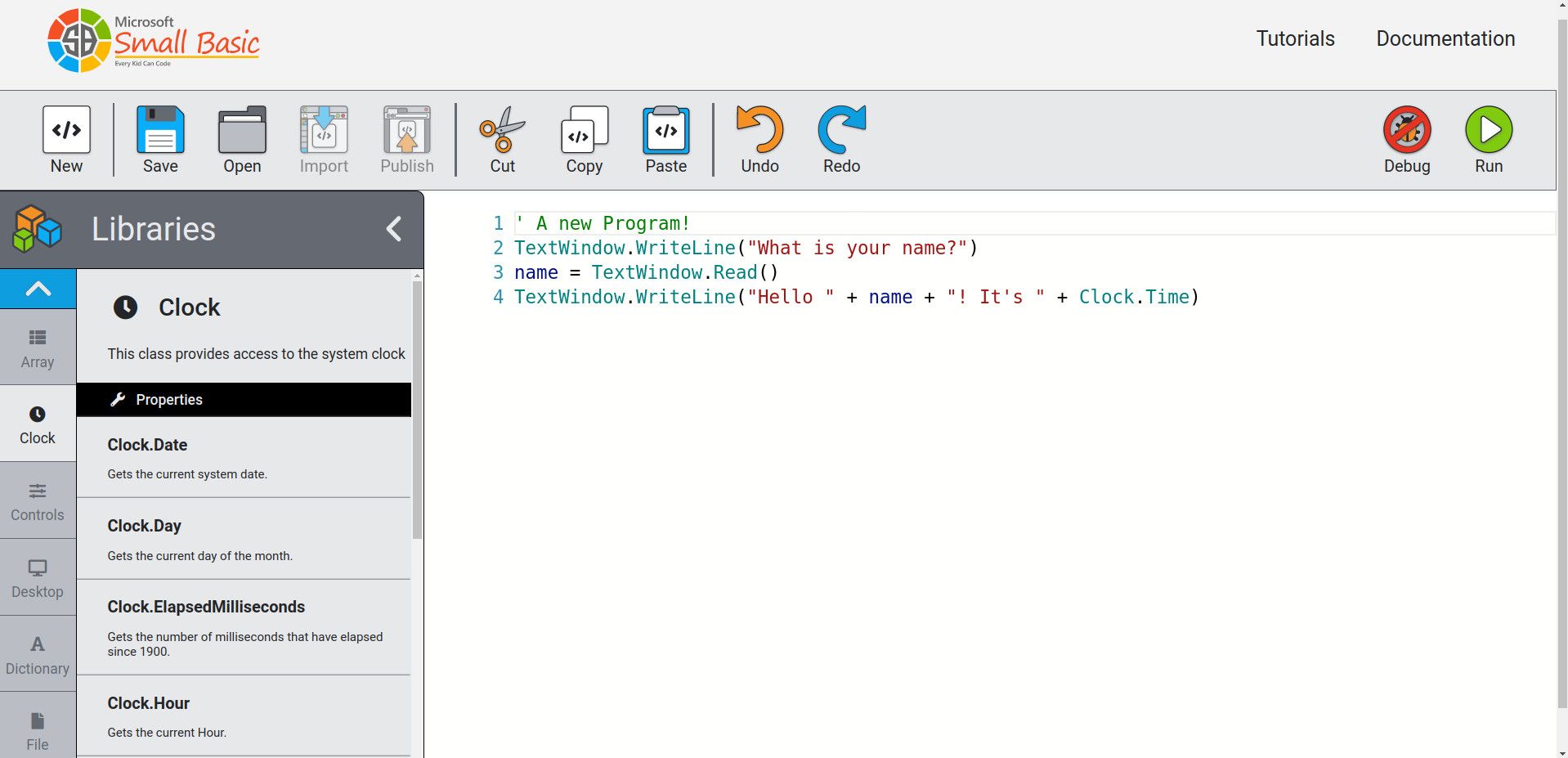Learning to code is a challenge no matter how old you are, but it can be especially tough for kids. Not only are general programming concepts difficult to grasp, but all the rules and syntax required can be tough to get right.
Luckily, several languages are naturally easier to learn. There are also excellent online resources that make code much more manageable for children to understand. This list will give you some options to start your child off on their programming journey.
1. Scratch
Scratch is the best way to learn logic and basic coding principles without any complicated syntax or development tools. It's a purely visual, block-based programming language where the user can snap code together from a toolbox of instruction blocks. It runs in the browser, and there is a ScratchJr iOS and Android app aimed at younger children.
Everything you find in written coding languages, including logic statements, loops, and functions, is expressed in an easy-to-understand visual style. This learning style is an excellent step for younger kids on the road to picking up programming, as when the time comes to move on to a written language, they'll have a firm grasp of the flow of a program and how to structure code.
Scratch is also perfect for the Raspberry Pi, as it comes preinstalled and can be used to control LEDs and buttons.
2. Microsoft MakeCode
MakeCode is Microsoft's online block coding platform, focussing on hobby microcontroller boards like the Micro:Bit and Adafruit Circuit Playground Express. While it is functionally similar to Scratch in many ways, it's perfect for learning about the basics of physical computing.
Even if you don't own one of the hobby microcontroller boards, there's an emulator built into the program, along with interactive and easy-to-follow tutorials for creating small-scale electronic projects.
3. SmallBasic
SmallBasic takes its name from the Basic programming language popular in early hobby computing. It's designed to bridge the gap between block coding languages like Scratch and typed programming languages like Python.
There's a comprehensive web editor with a built-in reference manual, along with links to tutorials and the documentation. There are also some perfect child-oriented beginner tutorials for the language. It's mostly a playground but a good one for learning programming concepts and getting used to the idea of syntax, though SmallBasic is very forgiving when you get it slightly wrong!
4. Learn Python with CodeCombat
Python is frequently chosen as a simple first "real" programming language due to its simple syntax and easy-to-read nature. There are many ways to learn Python for free, but most are too challenging for younger kids. There is, however, a fantastic alternative.
CodeCombat is a browser-based dungeon crawler with a difference. Everything you do to move, fight, and survive in the dungeon is through real Python code, with plenty of hints and tips given to keep you moving when you get stuck.
As you progress through the dungeon, you'll learn more and more real Python code along with key programming concepts, collecting loot and trophies along the way!
Bonus: CodeCombat also works with JavaScript, making it a great way to learn the initial concepts of programming for the web.
5. Easy Minecraft Coding with Tynker
Tynker is not a programming language, but it is among the best online resources for kids to learn code, so it deserves a place on this list. It comprises coding games, simple Minecraft modding, hour of code events, and kids code jams over various solo and community-led projects and events.
In fact, Tynker itself does most of what every other entry on this list does and is a great starting point even if you as a parent are not code-savvy. As well as the browser-based platform, there are three separate smartphone/tablet Tynker apps. Getting started is free, though to get the most out of it, you'll want to try one of the three subscription tiers for extra content.
6. Learn JavaScript with p5.js
JavaScript is the programming language the internet is built on, but it has a reputation for being badly built and difficult to learn. Luckily, there are libraries and tools designed to make learning JavaScript fun.
A library called p5.js is a great place to start. It's designed for creating visual art and music and has a fully integrated browser editor making it easy to get started right away.
What makes p5.js especially fun to learn is The Coding Train YouTube channel. Headed by lecturer Daniel Shiffman, it contains a complete course for learning programming concepts that remains fun, creative, and light-hearted throughout.
7. Learn Lua with Roblox
Lua is a scripting language with simplicity in mind. It's so compact and easy to learn that other games and programs use it as a basis for allowing mods and even completely new projects to be built out of pre-existing games. The most famous among these is a kid's classic: Roblox.
The above tutorial video shows just how easy it is to create a custom Roblox game. You'll learn core Lua concepts along with important Roblox programming processes that can be applied to other custom game modes.
For a more comprehensive Lua course using Roblox as a focus, Codakid features a full course for Roblox creation using Lua.
8. GameMaker Language
GameMaker is a powerful yet simple engine for building games. Where other game editors like Unity and Unreal are complex professional tools, GameMaker is designed to be as beginner-friendly as possible. Don't let that fool you, though; smash hits like Undertale were made using the engine.
GameMaker Language is the purpose build coding language for the engine. It's designed to be easy to read, much like Python, and each element of code exists in GameMaker's flowchart editor, making it easy to see what each piece of code does.
While a little tougher than some of the other options in this article, making a real game is a great motivation factor for learning. A parent or teacher with a little coding experience could help a child express their creativity or even finish their first game.
Programming for Kids: Plenty of Online Resources Available
Fundamentally coding is the process of breaking down a problem into steps and making little solutions to each problem. Learning the logic and syntax of programming is a skill that goes way beyond computer science and will help with almost all aspects of education.
While some of these options are more accessible than others, starting with Scratch and moving through the list will give your child a broad and fundamental understanding of programming concepts that are much harder to learn as an adult.



